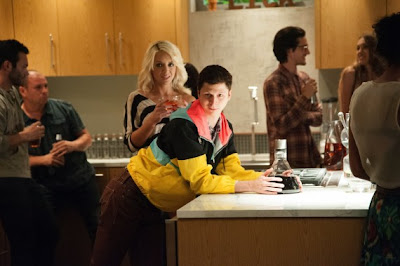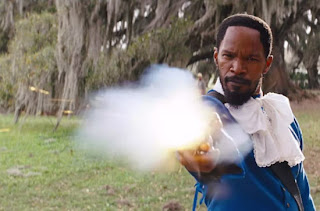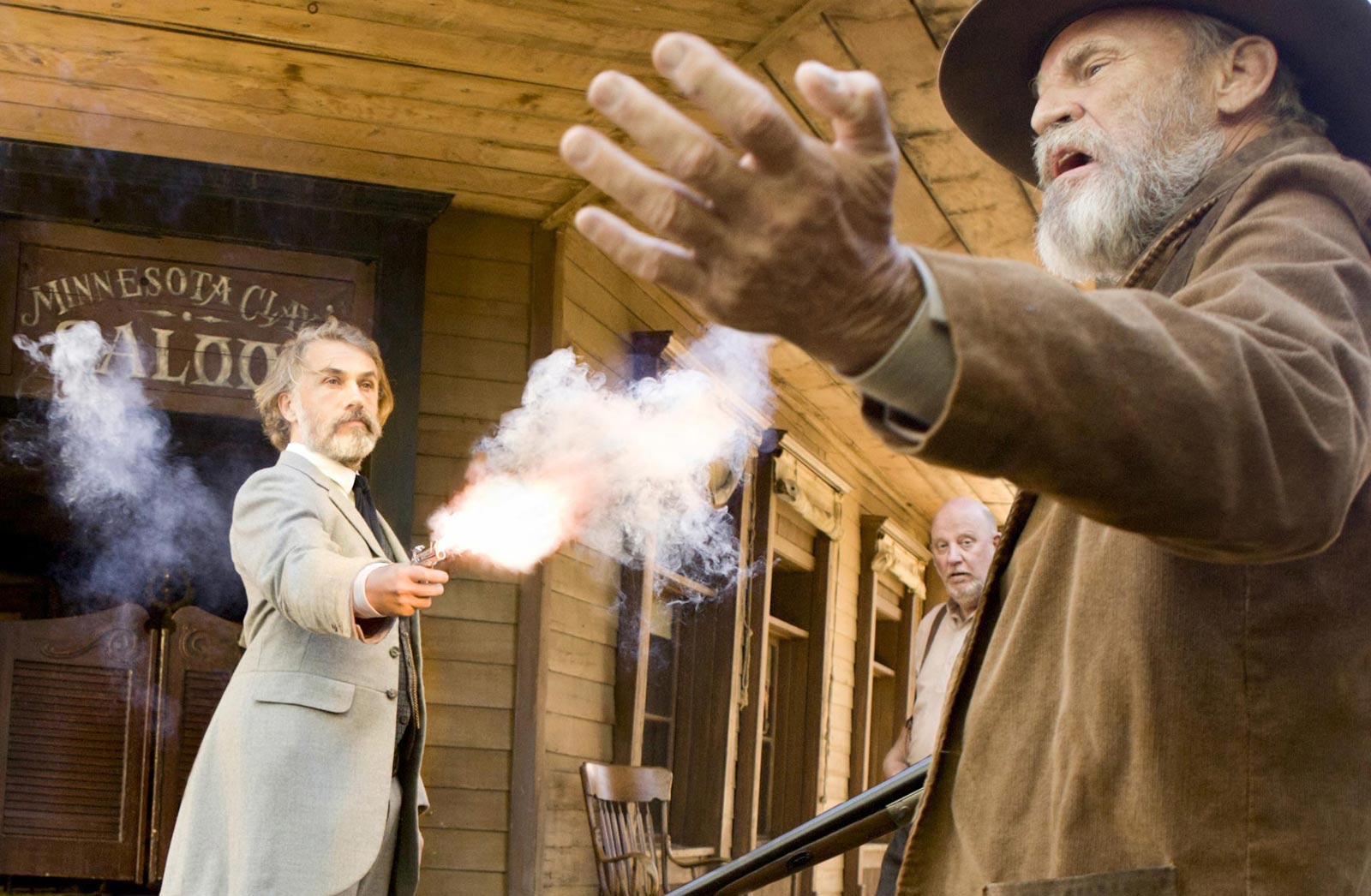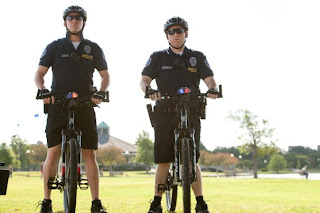 |
| Image via Slate |
“The Wolf of Wall Street” is the rare film in which its trailer is not misleading. If you came anticipating flying midgets and strippers with money taped to them, that is exactly what you will get.
Although he has dipped his toes into very different territory over the years (“The Aviator,” “Hugo”), Martin Scorsese returns to the world of crime and money again and again. Each time, he seems to have something new to say about it, and gives us another rags to riches villain to engrain into our memories.
Meet Jordan Belfort (Leonardo DiCaprio), a middle class kid from Bayside, Queens who just wants to make millions. His ambition brings him to Wall Street where he meets a broker (Matthew McConaughey) who teaches him how to survive on Wall Street, mainly through increased sex and drug intake.

Through some successes and failures over the next few years, Belfort finds himself in the penny stock business and eventually, he becomes a multimillionaire. He begins to live a life of excess as opposed to luxury. Those with enough money are comfortable. Then there are people like Jordan Belfort, who have more money than they can spend, and thus have wealth-induced anxiety. I hate that I am about to type this, but I feel like I have to: more money really does mean more problems.
Scorsese fights excess with excess. With a running time that just hits the three hour mark, he revels in the insane behavior that took place at Stratton Oakmont and then reprimands it. “The Wolf of Wall Street” embodies the truism that crime doesn’t pay, and it has such a fun time in doing so. “The Wolf of Wall Street” is a comedy, through and through, and by far one of the funniest movies of the year. This is a satire with consequences. It allows its actors to show off comic skills that you knew or didn’t know that they ever had.
Scorsese’s films with DiCaprio has proven to be one of the most successful actor-director collaborations ever, and about as close to the pairing that Scorsese and DeNiro once had. DiCaprio has never had a real comedic role before, which is a shame; he has never been funnier than he is in “The Wolf of Wall Street.” His drug-addled physical commitment to his performance turns Jordan Belfort into the weirdest kind of cartoon – the kind that will slink and slither as much as he needs to so long as it helps him put more money in his pocket. And while DiCaprio could probably make a rock seem charismatic, he has especially good chemistry with Jonah Hill, who plays his sidekick, Donnie Azoff. Many of the scenes are focused on Hill’s ability to bounce off another person in long banter sessions. He is as good with DiCaprio as he has been in past comedies with Michael Cera and Channing Tatum.

“The Wolf of Wall Street” proves that age has nothing on Scorsese. He recently said that he thinks he only has a few films left in him. However, his directorial style is as fresh today as it was when he first started. His view of the world lends itself to so many different times and places. However, it is fantastic to see him back in his home turf. Whether it is the 1860s in Five Points or the 1990s on Wall Street, Scorsese knows New York better than anyone. He captures the neighborhoods, the accents, and the attitudes. His hyperactive directing style lends itself so well to the chaotic energy of the city.
This film has been compared many times to “Goodfellas,” you know, that movie you will watch to completion anytime it is on cable. While the comparison sets “Wolf” up for high expectations, it is a fair one. “Wolf” is filled with criss-crossing perspectives and multiple voiceovers. This is Jordan’s story, and he gets a chance to try and justify himself with the perspective of time. However, allowing the side characters to comment is a sly way to let the audience know that the narrator cannot be trusted.
In the world of “The Wolf of Wall Street,” stockbrokers are the new gangsters: kids aspire to be them, women want to be with them. They see what they want and they take it. However, Henry Hill is something of a sympathetic figure, while Jordan Belfort does not come close to being sympathetic. The fact that the film is able to get this across is part of what makes it so good. While “Goodfellas” showed that gangsters could be average guys who found some short cuts to success, “The Wolf of Wall Street” portrays criminals as reverse Robin Hoods who got rich by ripping off the working class. “Wolf” is really about class warfare. The scene where Belfort and his gang launch little people for their own entertainment struck me as biting, yet sad comedy. It is about the equivalent of the scene in “History of the World: Part I” where King Louis shoots peasants for fun, the same people he is supposed to be looking out for.
Nobody contradicts himself for artistic gain quite as well as Scorsese does. Throughout the film’s run, quaaludes are snorted and orgies are had, and we get to experience the feeling of being involved in all of these. Scorsese has an amazing ability of being able to boil down the business of crime into something understandable. Sure, little pieces could have been trimmed off of the film here and there, but no scene really needed to be removed completely. There is never a boring moment in the film, something that cannot be said for most films that are half the length of “The Wolf of Wall Street.” You will enjoy every moment of what is on screen, and then question why you enjoyed something about a subject so dark. This is provocation done right in one of the best films of the year.
Brain Farts From The Edge (Minor Spoilers/Spoilers For Real Life Ahead)
- Matthew McConaughey is barely in the film, but he still deserves an Oscar nomination. I also like how most directors seem to have given up on trying to get him to drop his Texas accent.
- As Always, Kyle Chandler plays the authority figure. Luckily, he has more of a personality than he did in “Argo” and “Zero Dark Thirty.” Plus, he gets to curse. Go coach!
- The chimp in roller skates needed more screen time. He is as intriguing as the llama they always show backstage on “Saturday Night Live” but never explain.
- Apparently, Belfort’s main influence for his get rich quick scheme was Gordon Gekko of “Wall Street.” This once again proves that people are really, really bad at understanding simple irony.
- The quaalude tripping scene is unbelievable. From the Popeye reference to Belfort’s attempt to gain control of his own body, this is one of the funniest scenes of the year. Like tear-inducing laughter. It’s like a slightly more down-to-earth version of the drug trip sequence from “21 Jump Street.”
- During the drug trip, one very long lasting shot weirdly reminded me of the hanging scene in “12 Years a Slave.” Talk about two very different kinds of struggles.
- Something about this movie really makes me want to go eat in a diner in Queens.
- I immensely enjoyed the scene where Rob Reiner yelled at his wife over the TV show. It is really fun to watch old Jews argue.
- On that note, I don’t know what “The Equalizer” is, but I would totally watch it.
- One scene I could have done without (SPOILERS!): After Naomi (Margot Robbie) tells Jordan she wants a divorce and Jordan tries to steal his own daughter. It felt both unnecessary and painful to watch. At this point, I didn’t need any more evidence that he was selfish and pathetic. This scene just felt like overkill.
- The storm scene. Terrifying. “The Perfect Storm” has nothing on this. (Note: I have never seen “The Perfect Storm,” so it’s probably best to ignore this).
- I really enjoyed that nice little bit of subway symbolism in the end.
- The fact that this escaped an NC-17 rating is beyond me.
- F***ing Benihana.
- Now if you’ll excuse me, I’m gonna go watch “Goodfellas.”





.jpg)















